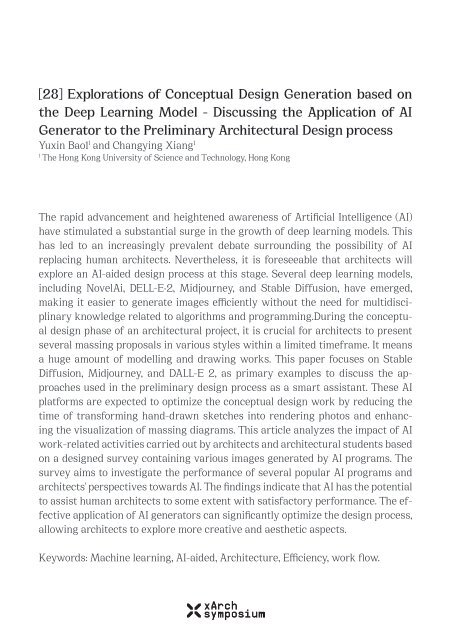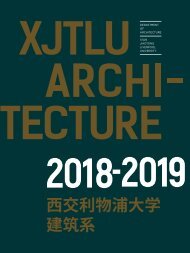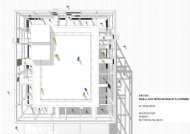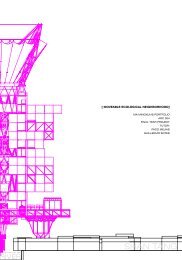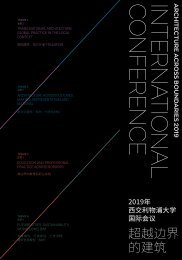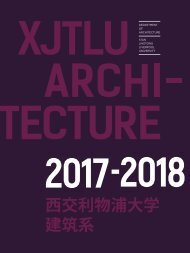231108_GDM_xArch_preprints
Create successful ePaper yourself
Turn your PDF publications into a flip-book with our unique Google optimized e-Paper software.
[28] Explorations of Conceptual Design Generation based on<br />
the Deep Learning Model - Discussing the Application of AI<br />
Generator to the Preliminary Architectural Design process<br />
Yuxin Bao1 1 and Changying Xiang 1<br />
1<br />
The Hong Kong University of Science and Technology, Hong Kong<br />
The rapid advancement and heightened awareness of Artificial Intelligence (AI)<br />
have stimulated a substantial surge in the growth of deep learning models. This<br />
has led to an increasingly prevalent debate surrounding the possibility of AI<br />
replacing human architects. Nevertheless, it is foreseeable that architects will<br />
explore an AI-aided design process at this stage. Several deep learning models,<br />
including NovelAi, DELL-E·2, Midjourney, and Stable Diffusion, have emerged,<br />
making it easier to generate images efficiently without the need for multidisciplinary<br />
knowledge related to algorithms and programming.During the conceptual<br />
design phase of an architectural project, it is crucial for architects to present<br />
several massing proposals in various styles within a limited timeframe. It means<br />
a huge amount of modelling and drawing works. This paper focuses on Stable<br />
Diffusion, Midjourney, and DALL-E 2, as primary examples to discuss the approaches<br />
used in the preliminary design process as a smart assistant. These AI<br />
platforms are expected to optimize the conceptual design work by reducing the<br />
time of transforming hand-drawn sketches into rendering photos and enhancing<br />
the visualization of massing diagrams. This article analyzes the impact of AI<br />
work-related activities carried out by architects and architectural students based<br />
on a designed survey containing various images generated by AI programs. The<br />
survey aims to investigate the performance of several popular AI programs and<br />
architects' perspectives towards AI. The findings indicate that AI has the potential<br />
to assist human architects to some extent with satisfactory performance. The effective<br />
application of AI generators can significantly optimize the design process,<br />
allowing architects to explore more creative and aesthetic aspects.<br />
Keywords: Machine learning, AI-aided, Architecture, Efficiency, work flow.


